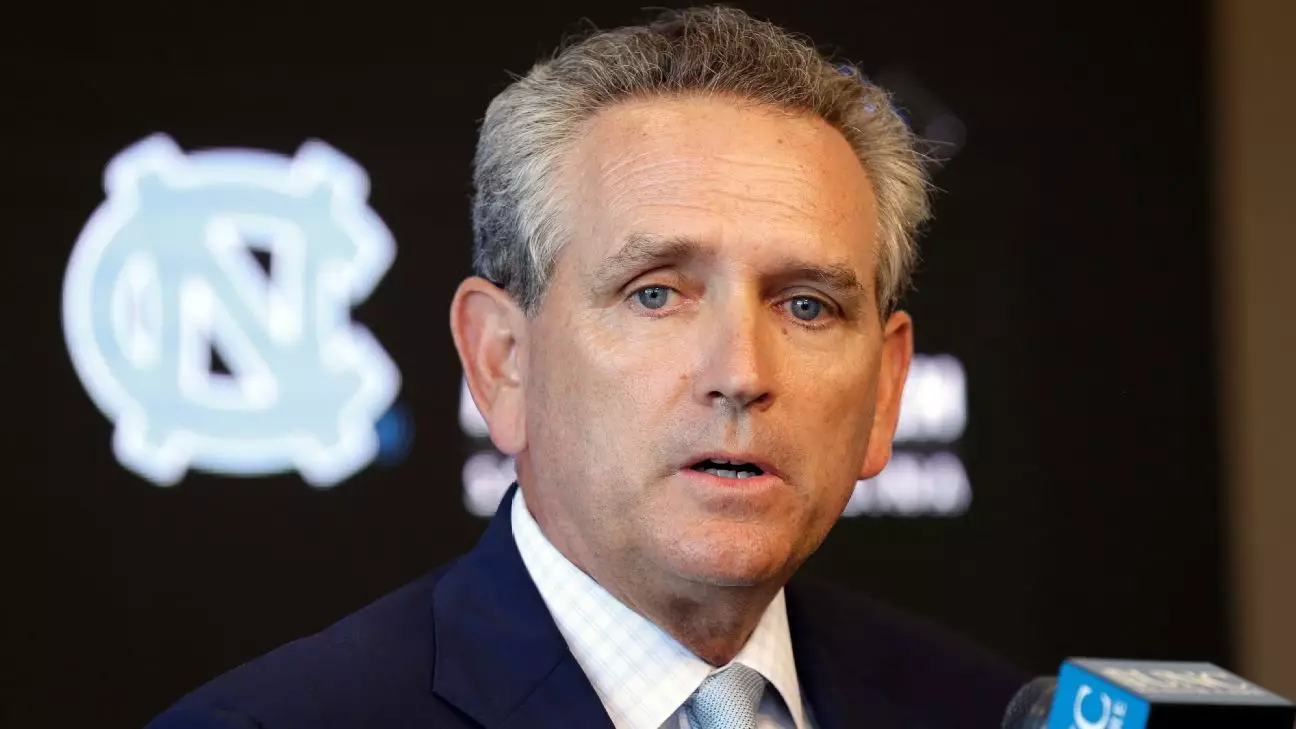In a recent board of trustees meeting, Florida State president Richard McCullough expressed the university’s willingness to consider leaving the Atlantic Coast Conference (ACC) unless there are substantial changes to the conference’s revenue distribution model. This announcement sparked a strong reaction from North Carolina athletic director Bubba Cunningham, who criticized Florida State’s approach of publicizing their intentions. While Cunningham’s concerns are valid, it is essential to delve deeper into the issue and objectively analyze the potential implications of Florida State’s departure from the ACC.
A Questionable Approach
Cunningham, in an interview with 99.9 The Fan in Raleigh, N.C., voiced his dissatisfaction with Florida State’s public statements. He argued that Florida State should focus on being a supportive member of the conference rather than creating controversy. Cunningham suggested that if Florida State truly wishes to leave the ACC, they should fulfill their obligations, including paying the hefty exit fee and waiting until 2036 when the grant of rights returns.
The Legal Obligations
According to the terms of the ACC television contract with ESPN, any institution seeking to leave the conference must pay a staggering $120 million exit fee. Additionally, they must find a way to navigate the grant of rights agreement, which grants the ACC control over each school’s media rights until 2036. Cunningham emphasized that all schools willingly entered into this agreement in 2016, and deviating from it raises questions about the validity of contractual obligations.
A Contradictory Stand
Florida State Board of Trustees chair Peter Collins dismissed the significance of the grant of rights document, claiming it would not prevent the institution from taking necessary action. Cunningham passionately disputed this statement, highlighting the responsibility that comes with signing a legally binding document. He argued that once a contract is signed, it obligates parties to uphold their end of the agreement. Florida State’s apparent desire to “get out” of the deal raises concerns about the commitment to contractual obligations.
Closing the Revenue Gap
The ongoing issue of generating revenue and distributing it equitably among ACC institutions has led to growing disparities between the conference and its competitors, like the Southeastern Conference (SEC) and the Big Ten. Cunningham acknowledged the desire for more financial resources but challenged the notion that money is the sole determinant of success. He suggested that winning games does not necessarily require having the most substantial financial resources, citing examples from North Carolina’s history.
Uncertain Future for the ACC
Considering the possibility of future conference realignments, Cunningham expressed skepticism about the ACC’s long-term prospects. He highlighted the need for schools and individuals to make crucial decisions about their future. Cunningham’s reservations about the sustainability of the current conference configuration raise valid concerns about the stability of the ACC moving forward.
While Bubba Cunningham’s criticism of Florida State’s publicized intent to leave the ACC may seem harsh, it is crucial to thoroughly evaluate the implications of such a departure. The legal obligations outlined in the grant of rights document pose significant challenges for any institution seeking to exit the conference. Additionally, the growing revenue gap and uncertainty surrounding the ACC’s future raise valid concerns about the conference’s long-term viability. Only time will tell how this situation unfolds, but one thing is for sure: Florida State’s decision will have a profound impact on the ACC and collegiate athletics as a whole.


Leave a Reply